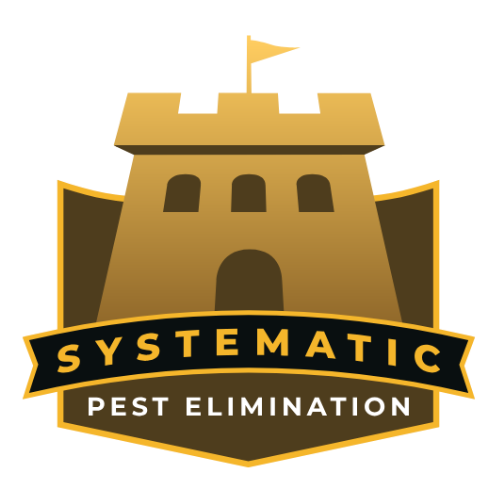How to Prevent Rat Infestations in NYC Apartments
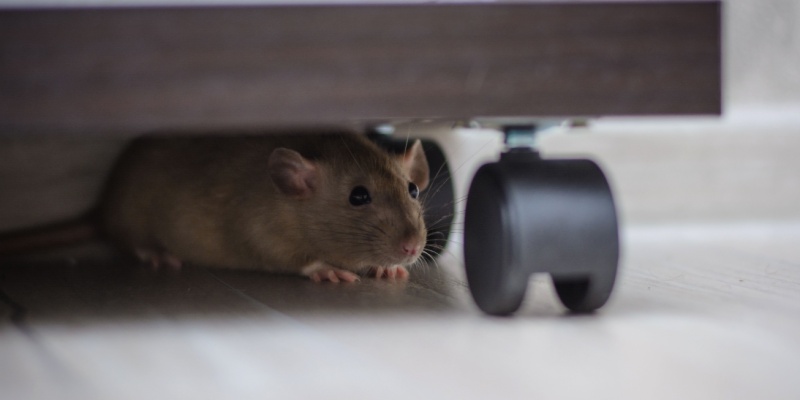
Rat infestations are a constant threat in New York City’s apartment buildings, but preventing these pests from entering your home is possible with the right strategies. Rats are notorious for spreading diseases, contaminating food, and damaging property, making it essential to take proactive measures to keep them out. By following these prevention tips, you can reduce the chances of a rat infestation in your NYC apartment. Why Rat Prevention is Important Rats are not only unsightly but also pose serious health risks. They carry diseases such as leptospirosis, salmonella, and hantavirus, which can be transmitted through their droppings, urine, and saliva. Rats can also cause significant property damage by chewing through wiring, insulation, and even walls. Preventing rats from entering your apartment is far easier and less costly than dealing with an active infestation. 1. Seal Entry Points Rats can enter buildings through tiny cracks and gaps in walls, floors, and foundations. To prevent rats from gaining access to your apartment: Regularly check your apartment for any holes, cracks, or gaps in the walls, around windows and doors, or near plumbing lines. Seal any potential entry points with materials like steel wool, metal mesh, or caulk. Rats can squeeze under doors with even small gaps. Installing door sweeps can help prevent them from entering through doorways, especially in basements and hallways. 2. Keep Your Apartment Clean Rats are attracted to food, and even small crumbs or food debris can lure them into your apartment. Keeping your living space clean is one of the most effective ways to prevent a rat infestation: Avoid leaving food out on countertops, and always store pantry items in airtight containers. This reduces the likelihood of attracting rats to your kitchen or dining area. Sweep and vacuum your floors regularly to remove crumbs and food debris. Pay special attention to areas where food is prepared or eaten, such as kitchens and dining rooms. Rats are drawn to garbage, so make sure to take out the trash regularly and keep it in a sealed, rat-proof bin. Avoid letting trash accumulate in your apartment, as this can attract rats. 3. Secure Trash Areas In apartment buildings, shared trash areas can be a common source of rat infestations. To prevent rats from accessing garbage, ensure that the building’s trash areas are well-maintained: Trash bins should have tight-fitting lids to prevent rats from accessing food waste. Make sure outdoor dumpsters are also securely closed to keep rats out. Trash areas should be cleaned regularly to remove food debris and spills that could attract rats. Property managers should ensure that these areas are properly maintained to prevent infestations. 4. Eliminate Water Sources Rats need water to survive, and they are attracted to areas with standing water or leaky pipes. Addressing any potential water sources in your apartment can help keep rats away: Check for leaks in sinks, bathrooms, and laundry areas. Even small drips can provide enough water to attract rats, so fixing leaks promptly is important. If your apartment has damp areas, such as basements or storage rooms, use dehumidifiers or fans to keep the area dry and less attractive to rats. 5. Maintain Shared Spaces In apartment buildings, common areas like basements, hallways, and laundry rooms can also provide entry points for rats. Work with your property manager to ensure these areas are properly maintained: Make sure basements, storage areas, and other common spaces are regularly inspected for signs of rats, such as droppings or gnaw marks. Setting traps in common areas can help catch any rats that may be attempting to enter the building. Check traps regularly and dispose of caught rats properly. Professional Help for Rat Prevention Preventing rat infestations in NYC apartments is a team effort between tenants and property managers. If you notice signs of rats, such as droppings, gnaw marks, or strange noises in the walls, it’s important to act quickly. Professional pest services from Systematic Pest Control can provide comprehensive rat prevention strategies, including sealing entry points, setting traps, and providing ongoing monitoring to keep your apartment rat-free.
Rodent Proofing Your NYC Restaurant: Essential Tips to Keep Rats Away

New York City’s restaurants are prime targets for rats, thanks to the abundance of food and hiding spots they offer. A single rat sighting in your restaurant can damage your reputation and lead to costly fines or even closure by the health department. That’s why rodent-proofing your restaurant is essential for keeping rats away and protecting your business. Here are some key strategies for keeping rats out of your NYC restaurant: 1. Seal Entry Points Rats can squeeze through openings as small as a quarter, making it crucial to seal any potential entry points in your restaurant. Here’s what to look for: Inspect the exterior of your building for cracks, gaps, or holes in walls, windows, and doors. Use caulk, steel wool, or metal mesh to seal these openings. Rats can enter through gaps around utility lines, such as plumbing and electrical cables. Make sure these areas are properly sealed to prevent rats from sneaking in. Rats can access your restaurant through floor drains, so it’s important to install rat guards or covers to prevent entry. 2. Keep Food and Waste Secure Rats are attracted to food, so proper storage and waste management are critical for keeping them out of your restaurant. Follow these guidelines to prevent rats from finding a food source: All food should be stored in sealed, rat-proof containers, preferably made of metal or thick plastic. Avoid leaving food out overnight, and make sure pantry areas are clean and organized. Food spills and crumbs are an open invitation for rats. Make sure your kitchen and dining areas are cleaned thoroughly at the end of each day, and wipe down all surfaces regularly. Rats are attracted to garbage, so use heavy-duty, rat-proof trash bins with tight-fitting lids. Keep outdoor dumpsters clean and well-maintained, and dispose of garbage regularly to avoid attracting rats. 3. Maintain a Clean Environment Cleanliness is one of the most effective ways to prevent a rat infestation in your restaurant. Rats thrive in unsanitary conditions, so maintaining a clean environment is key: Don’t forget to clean under and behind appliances, where food debris can accumulate. Pay special attention to areas near dishwashers, ovens, and refrigerators. After each shift, thoroughly sanitize all food prep areas, counters, and floors to remove any food residue. Grease traps can attract rats if not emptied regularly. Make sure grease traps are cleaned and maintained according to your restaurant’s schedule. 4. Inspect and Maintain Your Building Regular inspections and maintenance are crucial for keeping rats out of your restaurant. Here’s what to focus on: Conduct regular inspections of your building, paying close attention to areas where rats might enter, such as basements, storage rooms, and garbage areas. Rats can chew through wood, insulation, and even electrical wiring. Repair any structural damage immediately to prevent rats from using it as an entry point. Look for signs of rat activity, such as droppings, gnaw marks, and grease trails along walls. If you notice any of these signs, take immediate action to address the problem. 5. Work with Professional Pest Control Services Even with the best prevention measures in place, rats can still find a way into your restaurant. That’s why partnering with a professional pest control service is essential. Pest control experts can help you: Regular pest control inspections help identify potential entry points and signs of infestation before they become a major issue. Pest control professionals can strategically place traps and bait stations around your restaurant to catch rats before they cause problems. Continuous monitoring ensures that your restaurant stays rat-free, even during peak pest seasons. Protect Your Restaurant and Reputation By taking these steps to rodent-proof your NYC restaurant, you can prevent rats from gaining access to your business and protect your reputation. A clean, rat-free environment is essential for customer satisfaction and compliance with health department regulations. Don’t wait for a rat problem to arise—invest in professional rodent-proofing services to keep your restaurant safe and pest-free.
The Legal Consequences of Rat Infestations in NYC Restaurants
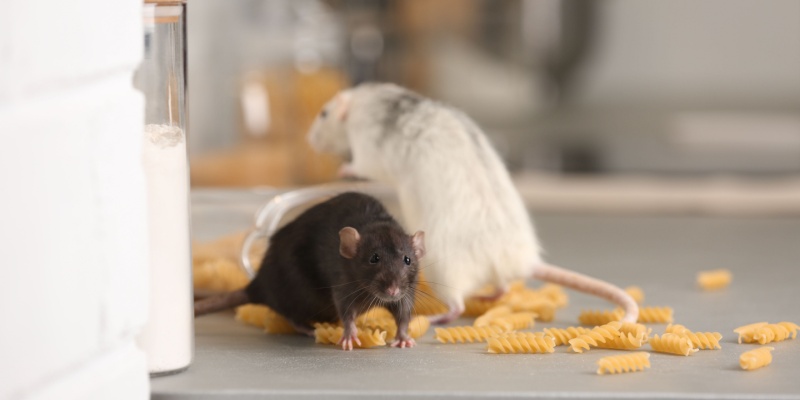
Rat infestations in restaurants are not only a health and safety issue but also come with serious legal consequences. New York City’s health department has strict regulations regarding pest control in food establishments, and restaurants that fail to comply can face significant fines, poor health inspection grades, and even closures. Understanding the legal ramifications of a rat infestation can help restaurant owners take the necessary steps to avoid legal trouble and protect their businesses. NYC Health Department Regulations on Pest Control The New York City Department of Health (DOH) has clear regulations for pest control in restaurants. Under these regulations, restaurants must maintain a clean and sanitary environment, free from pests such as rats, mice, and insects. Failing to meet these standards can result in violations, fines, and poor inspection grades. Health inspectors conduct routine inspections to ensure compliance with city regulations. During these inspections, they look for signs of pest activity, including rat droppings, gnaw marks, and grease trails. If an inspector finds evidence of a rat infestation, the restaurant can be cited for a violation, which could result in significant penalties. Fines and Penalties for Rat Infestations The fines for pest control violations in New York City can be steep. Depending on the severity of the infestation, fines can range from several hundred to several thousand dollars. Multiple violations can lead to cumulative fines, further increasing the financial burden on the restaurant owner. In addition to fines, restaurants may receive a poor health inspection grade if rats are present. In New York City, health inspection grades are posted publicly, and a low grade (such as a “C” rating) can severely impact a restaurant’s reputation, leading to a loss of customers and revenue. Temporary Closures Due to Infestations In cases of severe rat infestations, the health department has the authority to temporarily close a restaurant until the issue is resolved. A closure order is a worst-case scenario for any restaurant owner, as it can result in significant financial losses and long-term damage to the restaurant’s reputation. Before reopening, the restaurant must pass a follow-up inspection to ensure that the rat problem has been fully addressed. This often involves hiring professional pest control services, deep cleaning the premises, and making any necessary repairs to prevent rats from returning. Lawsuits and Liability Risks In addition to fines and closures, restaurants with rat infestations may face legal action from customers or employees who are affected by the presence of rats. For example, if a customer becomes ill after eating contaminated food or a staff member is injured by a rat-related hazard (such as a fire caused by rats chewing through electrical wiring), the restaurant owner may be held liable for damages. Lawsuits related to rat infestations can be costly, both financially and in terms of the damage to the restaurant’s reputation. Even if the restaurant wins the case, the negative publicity can be difficult to overcome. Steps to Avoid Legal Consequences To avoid the legal consequences of a rat infestation, restaurant owners should take a proactive approach to pest control. Here are some key steps to take: 1. Regular Pest Control Inspections Work with a professional pest control service to conduct regular inspections and treatments. Early detection and prevention are essential to keeping rats out of your restaurant. 2. Maintain Sanitation Standards A clean restaurant is less likely to attract rats. Ensure that all food prep areas, storage areas, and waste disposal areas are regularly cleaned and sanitized. 3. Respond Quickly to Complaints If a customer or employee reports seeing rats or signs of a rat infestation, take immediate action to address the issue. Ignoring complaints can lead to larger problems down the line. 4. Document Pest Control Efforts Keep records of all pest control efforts, including inspections, treatments, and repairs. If a legal issue arises, having documentation of your efforts to maintain a pest-free environment can be valuable in defending your business. By staying compliant with health department regulations and taking proactive steps to prevent rat infestations, restaurant owners can avoid costly fines, closures, and lawsuits, while protecting their business and reputation. The pros at Systematic Pest Elimination can help you protect your restaurant from rats – and the consequences that come with an infestation – reach out today.
How to Identify Early Signs of Rat Infestations in NYC Apartment Buildings

Rats are a common problem in many New York City apartment buildings, and if left unchecked, an infestation can quickly spiral out of control. Identifying the early signs of a rat problem is crucial to preventing a full-blown infestation. Knowing what to look for can help property managers and tenants take swift action before rats cause structural damage or spread diseases. Why Rat Infestations Are Common in NYC Apartments New York City’s densely populated urban environment provides rats with ample food sources, shelter, and hiding spots. In apartment buildings, rats can move easily between units through walls, ceilings, and plumbing systems, making it difficult to contain an infestation once it starts. Rats are nocturnal and tend to hide during the day, so early signs of their presence are often overlooked. Common Early Signs of a Rat Infestation 1. Droppings Rat droppings are often the first and most obvious sign of a rat infestation. Droppings are small, dark, and pellet-shaped, typically found near food sources, inside cabinets, or along baseboards. Fresh droppings are dark and moist, while older droppings appear dry and crumbly. 2. Gnaw Marks Rats constantly gnaw on objects to keep their teeth sharp. Look for gnaw marks on wood, wiring, plastic pipes, and food packaging. Rats can chew through a variety of materials, causing significant damage to apartment structures. 3. Grease Marks and Smudges Rats have oily fur, and as they move along walls or squeeze through tight spaces, they leave greasy smudges or dark streaks behind. Check baseboards, walls, and entry points for signs of grease marks. 4. Nesting Materials Rats build nests using shredded paper, fabric, and insulation. If you find small piles of these materials in hidden corners, inside walls, or in basements, it could be a sign of a rat nest. 5. Noises in Walls or Ceilings Rats are nocturnal, so you’re most likely to hear scratching, rustling, or squeaking sounds at night. Pay attention to unusual noises coming from inside walls, ceilings, or behind cabinets. 6. Burrows and Holes Rats often create burrows or tunnels in soft ground or within wall voids. Look for small holes around the foundation of the building or in dark, undisturbed areas such as basements or storage rooms. What to Do if You Suspect a Rat Infestation If you notice any of the early signs of a rat infestation, it’s important to act quickly to prevent the problem from worsening. Here are the steps you should take: Tenants should immediately inform property management if they suspect a rat problem. Property managers are responsible for addressing pest control issues and ensuring that the building is safe and habitable. Rat traps and bait stations can be used to catch or kill rats. However, for a large infestation, professional pest control services are the most effective solution. Rats can enter through cracks, holes, and gaps in walls, floors, and plumbing. Property managers should inspect the building for potential entry points and seal them to prevent rats from entering. Keeping common areas and individual apartments clean is essential to reducing the chances of a rat infestation. Store food in sealed containers, dispose of garbage regularly, and avoid leaving out food or water overnight. Professional Help for Rat Infestations Rats can spread quickly throughout apartment buildings, so it’s important to work with professional pest control services to eliminate the infestation and prevent it from returning. Pest control experts can provide comprehensive solutions, including trapping, baiting, and exclusion methods, to keep your apartment building rat-free.
How to Maintain a Rat-Free Business in New York

Maintaining a rat-free business environment in New York City requires vigilance, proactive measures, and a commitment to cleanliness. Rats are a common issue in urban areas. Preventing rats from infesting your property is essential for safeguarding your business’s reputation, health, and operations. Implementing Preventative Strategies To effectively keep rats away from your business, it’s crucial to implement a series of preventative measures. Here are some key strategies: 1. Seal Entry Points Inspect your property for gaps, cracks, and holes that could allow rats to enter. Use durable materials like steel wool, caulk, and metal mesh to seal these openings. Pay special attention to areas around doors, windows, utility lines, and the foundation. 2. Maintain Cleanliness A clean environment is less attractive to rats. Implement rigorous cleaning routines that include sweeping floors, wiping down surfaces, and removing food residues. Ensure that all areas, including storage rooms, kitchens, and bathrooms, are regularly cleaned and sanitized. 3. Proper Waste Management Dispose of waste promptly and use sealed, rodent-proof containers for trash storage. Keep outdoor dumpsters away from building entrances and clean waste areas frequently to eliminate odors and residues that attract rats. 4. Store Food Securely If your business handles food, store it in airtight containers to prevent access by rats. Organize food storage areas and conduct regular inspections to check for signs of contamination or pest activity. 5. Control Landscaping Maintain your property’s exterior by trimming vegetation and removing debris that could provide shelter for rats. Keep the perimeter clear and ensure that bushes and trees do not touch the building, as they can provide pathways for rats. Conducting Regular Inspections Regular inspections are essential for identifying potential vulnerabilities and signs of rat activity. Here’s how to conduct effective inspections: Conduct scheduled inspections of your property to identify signs of rat activity, such as droppings, gnaw marks, nests, and smudge marks. Use a checklist to ensure that all areas are thoroughly inspected. Use traps or monitoring devices to detect early signs of infestation. Place them in strategic locations where rats are likely to travel, such as along walls and near food sources. Consider hiring a professional pest control company to perform regular inspections and assessments. Their expertise can help identify potential risks and implement effective solutions. Partnering with Professional Pest Control Partnering with a professional pest control service provides an additional layer of protection for your business. Here’s what they offer: IPM strategies focus on long-term prevention and control by addressing the root causes of pest problems. Pest control professionals can implement IPM plans tailored to your business’s specific needs. Professionals provide customized solutions based on the unique challenges of your property. They can recommend treatments and preventative measures that are most effective for your environment. Regular monitoring by pest control professionals helps detect early signs of infestation and allows for prompt action to prevent outbreaks. Continuous assessments ensure that your business remains rat-free. Educating Employees Educating your employees about the importance of pest prevention and the role they play in maintaining a clean environment is crucial. Here are some steps to take: 1. Training Sessions Conduct training sessions to educate employees on proper waste disposal, food storage, and cleaning practices. Emphasize the importance of reporting any signs of pest activity immediately. 2. Employee Responsibilities Assign specific responsibilities related to pest prevention, such as monitoring waste areas, cleaning schedules, and conducting inspections. Empower employees to take ownership of maintaining a pest-free environment. Maintaining a rat-free business in New York City requires a combination of preventative strategies, regular inspections, professional pest control services, and employee education. By implementing these measures, you can protect your business from the damaging effects of a rat infestation, ensuring a safe, clean, and reputable environment for your employees and customers. Prioritizing pest prevention contributes to the success and sustainability of your business in the competitive NYC market.
How Do I Know If I Have a Rat Problem on My Commercial Property?
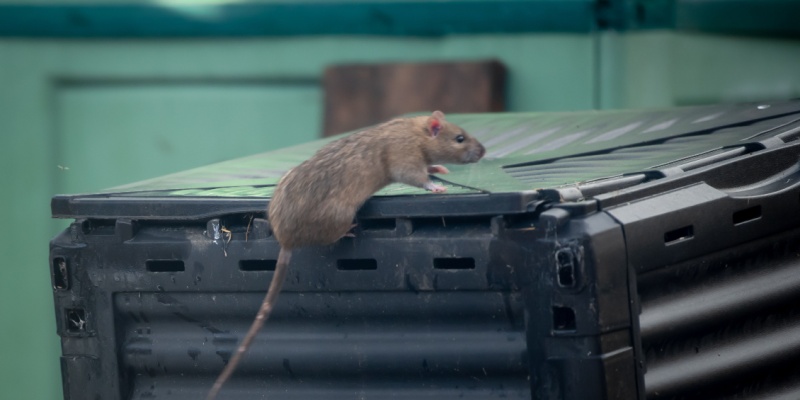
Rats are unwelcome visitors that can cause significant damage to commercial properties, affecting both operations and reputation. Identifying a rat problem early is crucial for minimizing harm and addressing the infestation effectively. Here’s how you can determine if you have a rat problem on your commercial property: Common Signs of a Rat Infestation Rats are nocturnal creatures, making it challenging to spot them during the day. However, they leave behind telltale signs of their presence. Here are some common indicators of a rat infestation: 1. Droppings Rat droppings are often found near food sources, in storage areas, and along frequently traveled paths. They are small, dark, and cylindrical in shape. Fresh droppings are typically shiny and moist, while older ones appear dry and brittle. If you notice droppings, it indicates that rats are actively present on your property. 2. Gnaw Marks Rats have strong teeth that continuously grow, compelling them to gnaw on objects. Look for gnaw marks on wood, wires, insulation, packaging, and food containers. These marks can also be found on structural elements, indicating potential damage to your property. 3. Nesting Materials Rats build nests using shredded paper, fabric, insulation, and other soft materials. They typically nest in hidden, undisturbed areas such as attics, basements, wall voids, and storage rooms. Finding nests or nesting materials can confirm the presence of rats. 4. Footprints and Smudge Marks In dusty areas, you may spot rat footprints or tail marks. Additionally, rats leave behind greasy smudge marks along walls and surfaces as they travel, due to the oils in their fur. These tracks can be a reliable sign of their activity. 5. Scratching Noises Since rats are most active at night, you might hear scratching, scurrying, or squeaking noises coming from walls, ceilings, or under floors. These noises indicate movement and nesting activity within your property. 6. Burrows and Holes Rats often create burrows and holes in outdoor areas, particularly around the foundation, garden beds, or under debris. If you notice new holes or tunnels, it could suggest an infestation nearby. Why Rats Target Commercial Properties Understanding why rats are attracted to your commercial property can help in preventing and addressing infestations: Commercial properties, especially those in the food industry, offer abundant food sources for rats. Improper food storage, waste management, and spills can attract these pests. Rats seek shelter in hidden, undisturbed areas where they can nest and reproduce. Cluttered storage spaces, basements, and unused areas provide ideal hiding spots. Leaky pipes, standing water, and condensation provide essential water sources for rats. Addressing plumbing issues can help deter infestations. Rats can enter buildings through small openings, gaps, and cracks. Poor maintenance of doors, windows, and structural elements can make it easier for rats to access your property. Steps to Confirm a Rat Infestation If you suspect a rat problem, take the following steps to confirm the infestation: 1. Conduct Thorough Inspections Perform a detailed inspection of your property, focusing on common hiding spots and areas where signs of rat activity are present. Use a flashlight to check dark corners, basements, and storage rooms. 2. Set Monitoring Traps Place baited traps or monitoring devices in areas where you suspect rat activity. These traps can help confirm the presence and severity of the infestation. 3. Consult Professionals If you’re unsure or need assistance, contact a professional pest control company. They have the expertise and tools to accurately assess the situation and recommend appropriate solutions. 4. Document Findings Keep a record of your findings, including photos of droppings, gnaw marks, nests, and other evidence. This documentation can be useful for pest control professionals and insurance purposes. Identifying a rat problem on your commercial property is essential for taking prompt action and minimizing damage. By recognizing common signs of infestation, understanding why rats target your property, and implementing thorough inspections, you can effectively manage and prevent rat problems. If you suspect an infestation, consider consulting with professional pest control services to ensure comprehensive solutions and long-term protection for your business.
Don’t Let Rats Take Over Your Commercial Property in New York
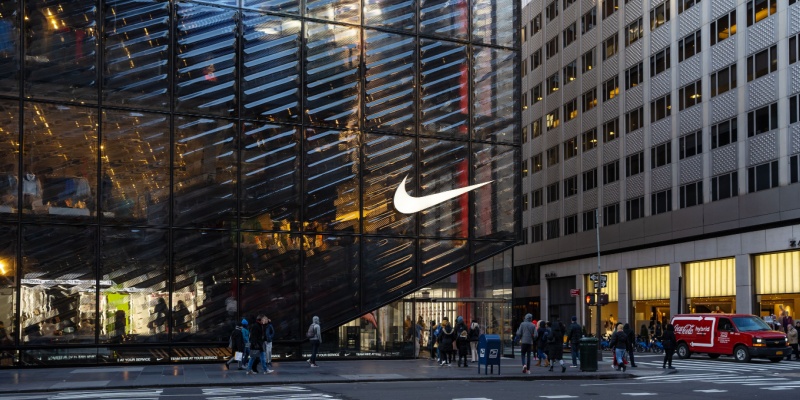
Rats are a significant concern for commercial properties in New York City due to the city’s dense population, aging infrastructure, and abundant food sources. Allowing these pests to invade your premises can result in substantial financial losses, health risks, and damage to your business’s reputation. To maintain a safe and pest-free environment, it’s crucial to take proactive measures against rat infestations. Here’s how you can prevent rats from taking over your commercial property: Understanding the Threat 1. Health Risks Rats are notorious carriers of various diseases, including leptospirosis, salmonella, and hantavirus. These diseases can be transmitted to humans through contact with rat droppings, urine, or contaminated surfaces. In commercial settings, especially those in the food and hospitality industries, the presence of rats poses significant health risks and can lead to serious legal liabilities if left unchecked. 2. Property Damage Rats have powerful incisors that can chew through wood, plastic, metal, and even electrical wiring. This behavior can lead to structural damage, fire hazards due to exposed wiring, and costly repairs. Additionally, rats can damage merchandise and storage areas, leading to financial losses and inventory shortages. 3. Reputation Damage In today’s digital age, a single rat sighting can spread rapidly across social media and review platforms, tarnishing your business’s reputation. Customers are unlikely to return to a business where they have witnessed or heard about pest issues, and negative reviews can deter potential clients. Signs of a Rat Infestation Detecting a rat problem early can save your business from extensive damage and financial loss. Here are some indicators of a rat infestation: 1. Droppings Look for dark, cylindrical droppings near food sources, along walls, and in hidden corners. 2. Gnaw Marks Check for gnaw marks on packaging, furniture, wiring, and structural materials. 3. Nesting Materials Shredded paper, fabric, and other soft materials are often used by rats to build nests. 4. Tracks and Smudge Marks Rats leave behind greasy smudge marks and tracks in dusty areas. 5. Noise Listen for scratching or scurrying sounds, especially at night, as rats are nocturnal. Professional Pest Control Solutions For comprehensive protection against rats, consider partnering with a professional pest control company. Here’s how they can assist: Pest control professionals conduct thorough inspections to identify vulnerabilities and signs of rat activity. They use their expertise to recommend appropriate treatments and preventative measures tailored to your property. Many pest control companies offer IPM solutions that focus on long-term prevention, monitoring, and control. This approach combines various strategies to minimize pest risks while reducing reliance on chemical treatments. Professionals can create a customized pest management plan that addresses the unique challenges of your commercial property. This plan will outline specific actions to prevent and eliminate rat infestations effectively. Continuous monitoring and maintenance services help ensure your property remains rat-free. Regular assessments allow for quick response to any new signs of infestation. Rats can pose a severe threat to your commercial property in New York, but with proactive measures and professional assistance, you can prevent them from taking over. By securing entry points, maintaining cleanliness, managing waste properly, and employing expert pest control services, you can protect your business from the harmful effects of a rat infestation. Prioritizing pest prevention safeguards your reputation, ensures the safety of your employees and customers, and contributes to the overall success of your business.
A NYC Business Owner’s Worst Nightmare: RATS
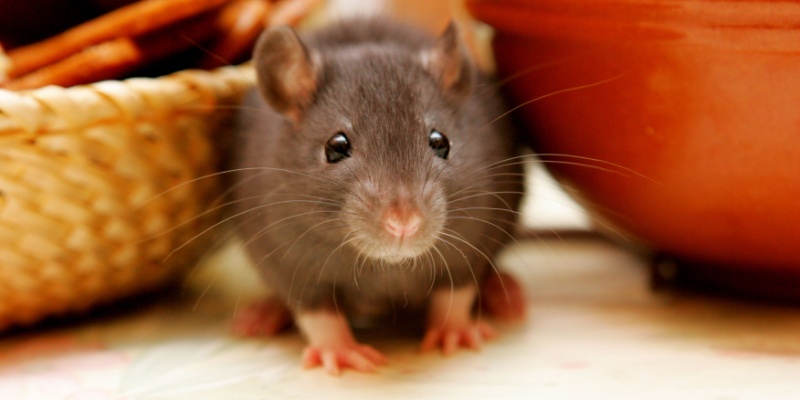
For business owners in New York City, the mere mention of rats is enough to cause anxiety. These pests are notorious for causing major problems in urban environments. A rat infestation can quickly become a nightmare for any business owner. The presence of rats not only poses health risks but can also lead to significant financial and reputational damage. Here’s why rats are considered a business owner’s worst nightmare and what you can do to prevent them from taking over your premises: The Threat Rats Pose to Your Business Rats are among the most destructive pests that can invade a business, particularly in densely populated areas like NYC. Here are some of the threats they pose: 1. Health and Safety Concerns Rats are vectors for numerous diseases and can contaminate food, surfaces, and products with harmful pathogens. This poses a serious health risk to employees and customers and can result in legal liabilities for business owners. 2. Damage to Infrastructure Rats have powerful teeth and can chew through wood, plastic, and even metal. This can lead to structural damage, compromised electrical systems, and costly repairs. Additionally, rat infestations can result in fire hazards due to gnawed electrical wires. 3. Inventory Loss Rats can destroy inventory by chewing through packaging and contaminating goods. This not only results in financial losses but can also lead to supply chain disruptions and dissatisfied customers. 4. Reputation Damage The presence of rats in your business can severely damage your reputation. Negative reviews and word-of-mouth can spread quickly, deterring potential customers and impacting your bottom line. Why Rats Thrive in NYC New York City provides an ideal environment for rats due to several factors: The high population density provides ample food and shelter opportunities for rats. Many buildings in NYC have aging infrastructure with cracks and crevices that rats can exploit to enter and nest. The abundance of waste generated in the city provides a continuous food source for rats, making it challenging to control their populations. Strategies to Prevent Rat Infestations To protect your business from becoming a haven for rats, implement the following strategies: 1. Conduct Regular Inspections Regularly inspect your property for signs of rat activity, such as droppings, gnaw marks, and nesting materials. Early detection allows for prompt action to prevent infestations from worsening. 2. Implement Exclusion Techniques Seal all potential entry points using durable materials like metal mesh, steel wool, and caulk. Pay special attention to gaps around doors, windows, and utility penetrations. 3. Maintain Cleanliness and Hygiene Ensure that your business premises are clean and free of clutter. Implement strict waste management practices, including sealed trash bins and regular disposal. 4. Store Food Properly If your business handles food, store it in airtight containers and ensure proper inventory management. Clean storage areas regularly to prevent attracting rats. 5. Engage Professional Pest Control Services Partner with a professional pest control company that can provide ongoing monitoring and tailored prevention solutions. Their expertise can help keep your business rat-free and address any issues before they become severe. Rats are indeed a nightmare for NYC business owners due to the extensive damage and health risks they pose. However, by understanding the reasons why rats thrive in urban environments and implementing proactive prevention strategies, you can protect your business from these unwelcome pests. A combination of regular inspections, effective exclusion techniques, strict hygiene practices, and professional pest control services is essential for maintaining a rat-free business environment.
How Rats Can Ruin Your Business Reputation
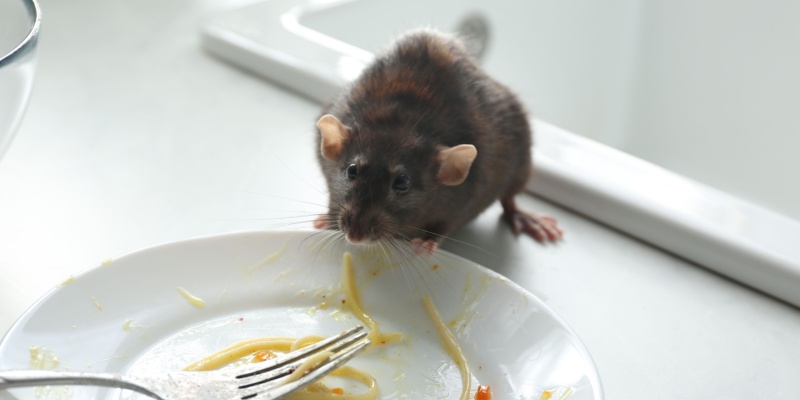
In New York City, the competition is fierce when it comes to running a restaurant. Maintaining a spotless reputation is an important element of success for many restaurant owners. Unfortunately, one of the quickest ways to tarnish that reputation is through a rat infestation. Rats can cause significant damage to your business’s image, customer trust, and bottom line. Understanding the impact of a rat problem and taking proactive measures to prevent infestations are essential for protecting your business reputation. The Impact of Rats on Your Business Rats are not just a nuisance; they pose serious risks to your business in several ways: 1. Health Hazards Rats carry a variety of diseases, such as leptospirosis, salmonella, and hantavirus, which can be transmitted to humans through direct contact or contaminated food. The presence of rats in your business can lead to health code violations, fines, and even temporary closures. 2. Customer Perception A single rat sighting can severely damage customers perceptions of your business. In today’s digital age, negative reviews and social media posts about pest sightings can spread rapidly, deterring potential customers from visiting your establishment. 3. Damage to Property Rats are notorious for chewing through wires, insulation, and structural materials, leading to costly repairs and safety hazards. They can damage inventory, equipment, and infrastructure, further impacting your business operations. 4. Legal Liabilities Failure to address a rat infestation can result in legal liabilities if customers or employees become ill due to exposure to rats. Maintaining a pest-free environment is part of your responsibility as a business owner. Common Signs of a Rat Infestation Early detection of a rat problem is crucial to mitigating damage and protecting your reputation. Here are some signs to watch for: 1. Droppings Rat droppings are dark, cylindrical, and typically found near food sources, nesting sites, or travel paths. 2. Gnaw Marks Rats chew on wood, wires, and other materials, leaving behind gnaw marks that can be a clear indication of their presence. 3. Nesting Materials Rats build nests using shredded paper, fabric, and other soft materials. Finding these nests in hidden areas can indicate an infestation. 4. Scratching Noises Rats are active at night and may be heard scurrying or scratching within walls, ceilings, or under floors. 5. Footprints and Smudge Marks In dusty areas, you may notice rat footprints or greasy smudge marks along walls where they travel. Preventative Measures to Protect Your Reputation To safeguard your business from a rat infestation, implement the following preventative measures: Inspect your property for gaps, cracks, and holes that could allow rats to enter. Seal these with durable materials like steel wool, caulk, or metal mesh to prevent access. Ensure that all trash bins are tightly sealed and emptied regularly. Keep waste areas clean and use containers that rats cannot easily penetrate. Conduct regular inspections of your property to identify potential vulnerabilities and address them promptly. Look for signs of rat activity and take action immediately if you notice any. Maintain rigorous sanitation practices to eliminate food and water sources that attract rats. Store food in secure containers and clean up spills and crumbs promptly. Partner with a reputable pest control service to implement ongoing monitoring and prevention strategies. Professionals can provide customized solutions to keep your business rat-free. Rats can have a devastating impact on your business reputation if not addressed promptly. By understanding the risks, identifying early signs of infestation, and implementing effective prevention measures, you can protect your business from the negative consequences of a rat problem. Maintaining a pest-free environment is essential for preserving your reputation, ensuring customer satisfaction, and safeguarding your bottom line. Get in touch with the pros at Systematic Pest Elimination to get started with a pest management program that will protect your reputation by keeping your restaurant rodent-free.
Protect Your NYC Retail Store from Rats and Mice

Owning or managing a retail store in the bustling metropolis of New York City comes with challenges, and dealing with pests like rats and mice shouldn’t be one of them. These unwanted intruders can cause damage to inventory, contaminate food products, and drive away customers, posing a significant threat to the success and reputation of your retail business. To safeguard your NYC retail store from rats and mice, it’s essential to take proactive measures and enlist the help of professional pest elimination experts like Systematic Pest Elimination. In this blog post, we’ll explore the risks posed by rats and mice in NYC retail stores and provide effective strategies to protect your business. 1. Health Risks 2. Property Damage 3. Contamination of Goods 4. Reputation Damage To protect your NYC retail store from rats and mice, it’s crucial to enlist the help of professional pest elimination experts like Systematic Pest Elimination. With years of experience serving businesses across New York City, Systematic Pest Elimination specializes in providing tailored pest solutions to eliminate rodent infestations and prevent future outbreaks. Why Choose Systematic Pest Elimination 1. Experience We have extensive experience servicing retail stores and businesses in NYC, making us well-equipped to handle rodent infestations in commercial environments. 2. Expertise Our technicians are highly trained and knowledgeable in rodent behavior, biology, and elimination methods, allowing us to develop effective treatment plans tailored to each retail store’s unique needs. 3. Integrated Pest Management (IPM) We utilize an integrated pest management approach, emphasizing prevention, monitoring, and targeted interventions to eradicate rodents while minimizing environmental impact. 4. Customized Solutions We understand that every retail store is unique, which is why we develop customized treatment plans tailored to each client’s specific challenges and requirements. 5. Customer Satisfaction We are committed to providing exceptional service to our clients, with responsive customer support, flexible scheduling options, and transparent communication. Protecting your NYC retail store from rats and mice is essential to maintaining a clean and safe environment for customers and employees. Systematic Pest Elimination offers effective solutions to eliminate pests and prevent future infestations, ensuring the health and reputation of your business. Proper pest control measures can safeguard your store against the damages and health risks associated with rodent infestations. Don’t wait until it’s too late – take proactive steps to protect your retail store today with the help of Systematic Pest Elimination. Safeguard your business, customers, and employees from rodents by contacting us now for a consultation.
